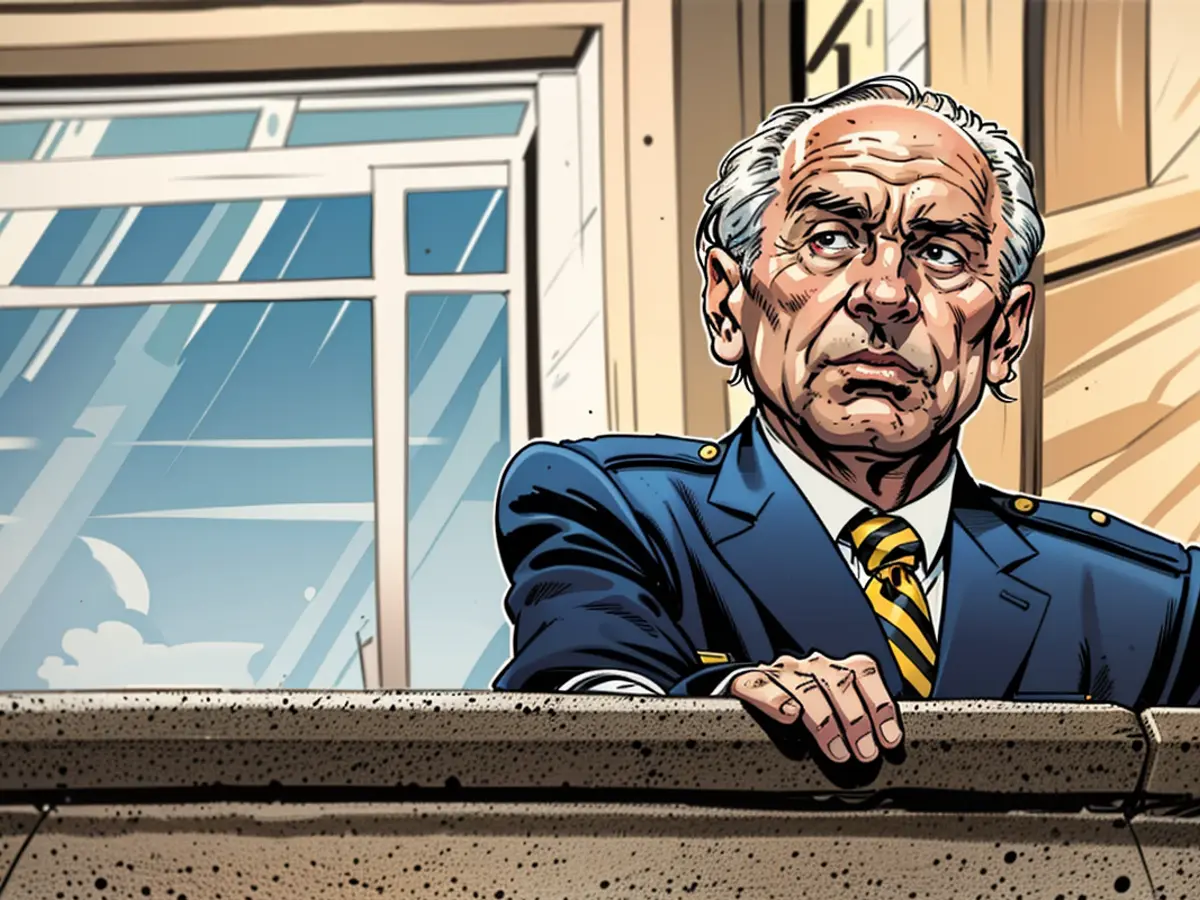Upon Genscher's renowned, abbreviated declaration.
In 1989, thousands of East Germans yearned for change and sought refuge at the West German embassy in Prague, hoping to escape to the West. On September 30, the embassy crowd received some good news from Federal Foreign Minister Hans-Dietrich Genscher. Jens Hase, now 54, was one of the fortunate refugees who scaled the embassy's rusty fence, with handholds provided by the corrosion. The climb left a lasting scar on Hase's thumb, a memorable injury worth cherishing.
That September, Eisenacher native Hase joined countless other East Germans attempting to escape from the so-called workers' and peasants' state by breaching the West German embassy's fence. Their courageous acts set in motion historical events, irrevocably altering the course of this divided nation. "We just wanted to get out," explains Hase. Each individual had their personal motivations for fleeing.
As a 19-year-old with an application for an exit permit to the West, Hase found himself left behind in Eisenach when his parents' permit was approved but not his own. The communist regime was reluctant to relinquish its young workers. The family remained segregated by the Berlin Wall and the heavily fortified border checks between the two German territories.
"Missing my parents and growing increasingly uncomfortable in my factory job due to their escalating influence were both prominent factors in my decision to flee," recounts Hase. Acting upon his newfound resolve, the young German trekked to Prague after watching disturbing news reports of the refugees on TV.
Upon arrival, Hase was wary of suspicious East German customs officers conducting body inspections on the train. Arriving at the embassy, he found a crowd of fellow refugees with shared goals. The "Palais Lobkowicz" hosted roughly 4500 individuals, with insufficient facilities to meet their surging needs.
The dreadful living conditions led to long lines snaking through the main areas, transforming into dangerous, unsanitary conditions. For many, weeks of awaiting freedom took their toll. Cases of illness and panic loomed ever-present threats.
"Listen up, we have some information for you..."
"Reflecting upon it now, I realized that my confinement didn't feel so burdensome," says Hase. "I was secure in the knowledge that I was safe." The embassy commotion ignited busy diplomatic discussions between Bonn, Moscow, and East Berlin, albeit fruitless for an extended period.
On September 30, 1989, with an audible atmosphere of anticipation in the air, Hase awoke from his slumber to find himself surrounded by an unusual gathering. Hearing unfamiliar voices, the wide-eyed 19-year-old approached the source and recognized Federal Foreign Minister Hans-Dietrich Genscher.
Addressing the crowd, Genscher announced that the refugees would be granted an exit from their confinement. The fortunate refugees would then continue their journey aboard trains through East German territory. The collective mood soured as they realized they likely still had to face more challenges.
False suspicions intensified when people speculated that this was all part of a ploy concocted by East Germany's communist regime. However, as soon as the first group entered the border between West and East Germany, the joy and relief were palpable.
"The train swayed," remembers Hase. "It was massive and everyone was peering out of their train windows. It started getting dark. That was the West - and we were there."
The refugee exodus persisted
News of the freedom that awaited those escaping East Germany spread, prompting a flood of new refugees to the West German embassy in Prague. By October 3rd, approximately 4000 individuals had joined the ranks of refugees in desperate search of new beginnings. More special trains followed suit, ferrying more weary refugees across the territory.
In an effort to control the exodus, East Germany ultimately closed its borders with Czechoslovakia. Yet this only served to further ignite the country's populace. Mass protests in Leipzig escalated, fueled by a powerful wave of resentment. Undeterred, East Berlin eventually relented, allowing its citizens to travel to the West via Czechoslovakia.
The cracks in the Iron Curtain began to show as travel restrictions gradually dissipated. By November 1st, East Germany facilitated the transit of its people to the West. Furthermore, just two days later, the DDR allowed uninterrupted travel to the Federal Republic, a revolutionary shift in policy.
The Berlin Wall's long-awaited dismantlement approached quickly. On November 9, 1989, the legendary structure finally collided with the force of history, crashing to the ground and shattering the previously impregnable divide between East and West.
When recounting his experiences to younger generations, Hase often receives the same question: "Why didn't you just wait a few more weeks?" His response is simple: "No one can predict the implications of a historical event like we experienced; we wouldn’t have known what could have happened if we had waited and decided against fleeing."
In the context of historical events that shook East Germany, Hase's hometown, Eisenach, was not an exception. Many Eisenach residents, including Hase, aspired to leave the GDR, motivated by their personal circumstances and the desire for change.
The GDR's government faced increased pressure as more individuals sought to defect, with thousands gathering at West German embassies, such as the one in Prague, to request asylum.








